Description
Description :
A sequence sunburst is a type of interactive data visualization that represents hierarchical data in a radial layout. It consists of concentric circles, with each circle representing a level in the hierarchy. The innermost circle represents the root node, while subsequent circles represent nested levels of the hierarchy. Each segment of the sunburst corresponds to a category or subcategory, and the size of each segment reflects its relative importance or value. Users can interact with the sequence sunburst by clicking on segments to zoom in and out, revealing further levels of detail in the hierarchy. This visualization is particularly useful for visualizing hierarchical data structures and exploring relationships between categories or subcategories.
The purposes of a sequence sunburst visualization include:
- Hierarchical Data Exploration: Sequence sunburst visualizations allow users to explore hierarchical data structures by representing categories or subcategories in a radial layout. Users can navigate through different levels of the hierarchy to gain insights into the relationships between various elements.
- Identifying Patterns and Trends: By visually displaying hierarchical relationships, sequence sunburst visualizations help users identify patterns, trends, and clusters within the data. This can be useful for uncovering insights and understanding the structure of complex datasets.
- Comparing and Contrasting Categories: Sequence sunburst visualizations enable users to compare and contrast categories or subcategories within the hierarchy. By examining the size and distribution of segments, users can identify differences in importance or value across different levels of the hierarchy.
- Interactive Data Exploration: Sequence sunburst visualizations often include interactive features that allow users to zoom in and out of different levels of the hierarchy. This interactivity enhances data exploration and enables users to focus on specific areas of interest.
- Communicating Insights: Sequence sunburst visualizations provide a visually engaging way to communicate insights and findings to stakeholders. The hierarchical layout and interactive features make it easier for users to understand complex data structures and relationships.
- Facilitating Decision-Making: By visualizing hierarchical data in a clear and intuitive manner, sequence sunburst visualizations can help users make informed decisions. Whether exploring organizational structures, product categories, or other hierarchical datasets, users can use the visualization to support decision-making processes.
Overall, the purposes of sequence sunburst visualizations revolve around exploring hierarchical data structures, identifying patterns and trends, comparing categories, facilitating interactive data exploration, communicating insights, and supporting decision-making processes across various domains and applications.
The uses of sequence sunburst visualizations include:
- Organizational Structure Visualization: Sequence sunburst visualizations can represent organizational hierarchies, such as corporate structures, team compositions, or departmental breakdowns. Users can explore the relationships between different levels of the organization and understand reporting lines, team compositions, and organizational roles.
- Website Navigation Design: Sequence sunburst visualizations can be used to design intuitive website navigation structures. By representing website content hierarchically, users can navigate through different sections, pages, and categories with ease. This is particularly useful for websites with complex content structures, such as e-commerce platforms or information-rich websites.
- Product Categorization and Analysis: In e-commerce and retail industries, sequence sunburst visualizations can help categorize products hierarchically. Users can explore product categories, subcategories, and product attributes, facilitating product analysis, merchandising, and inventory management.
- Biological Taxonomy Visualization: Sequence sunburst visualizations are commonly used in biology to represent hierarchical taxonomic classifications of organisms. Users can explore the relationships between different taxa, such as kingdoms, phyla, classes, orders, families, genera, and species, aiding in biological research and classification.
- Data Exploration in Data Science: In data science and analytics, sequence sunburst visualizations can be used to explore hierarchical datasets. Users can analyze the relationships between different variables, dimensions, or clusters, helping to uncover insights, patterns, and trends within the data.
- Process Visualization and Workflow Analysis: Sequence sunburst visualizations can represent process hierarchies and workflows in various industries, such as manufacturing, logistics, and project management. Users can explore different stages, subprocesses, and dependencies within a workflow, facilitating process analysis, optimization, and decision-making.
- Educational Visualization: Sequence sunburst visualizations can be used in educational settings to teach hierarchical concepts, such as organizational structures, taxonomic classifications, or website navigation principles. Students can interactively explore hierarchical relationships and deepen their understanding of complex topics.
Overall, sequence sunburst visualizations find uses across a wide range of industries and applications, including organizational structure visualization, website navigation design, product categorization, biological taxonomy, data exploration, process visualization, workflow analysis, and educational visualization.
Only logged in customers who have purchased this product may leave a review.
Related products
-
- Sale!
Density Contours charts
-
$ 15Original price was: $ 15.$ 10Current price is: $ 10. - Add to cart
-
- Sale!
Radial Tidy Tree
-
$ 15Original price was: $ 15.$ 10Current price is: $ 10. - Add to cart
-
- Sale!
Indented Tree
-
$ 15Original price was: $ 15.$ 10Current price is: $ 10. - Add to cart


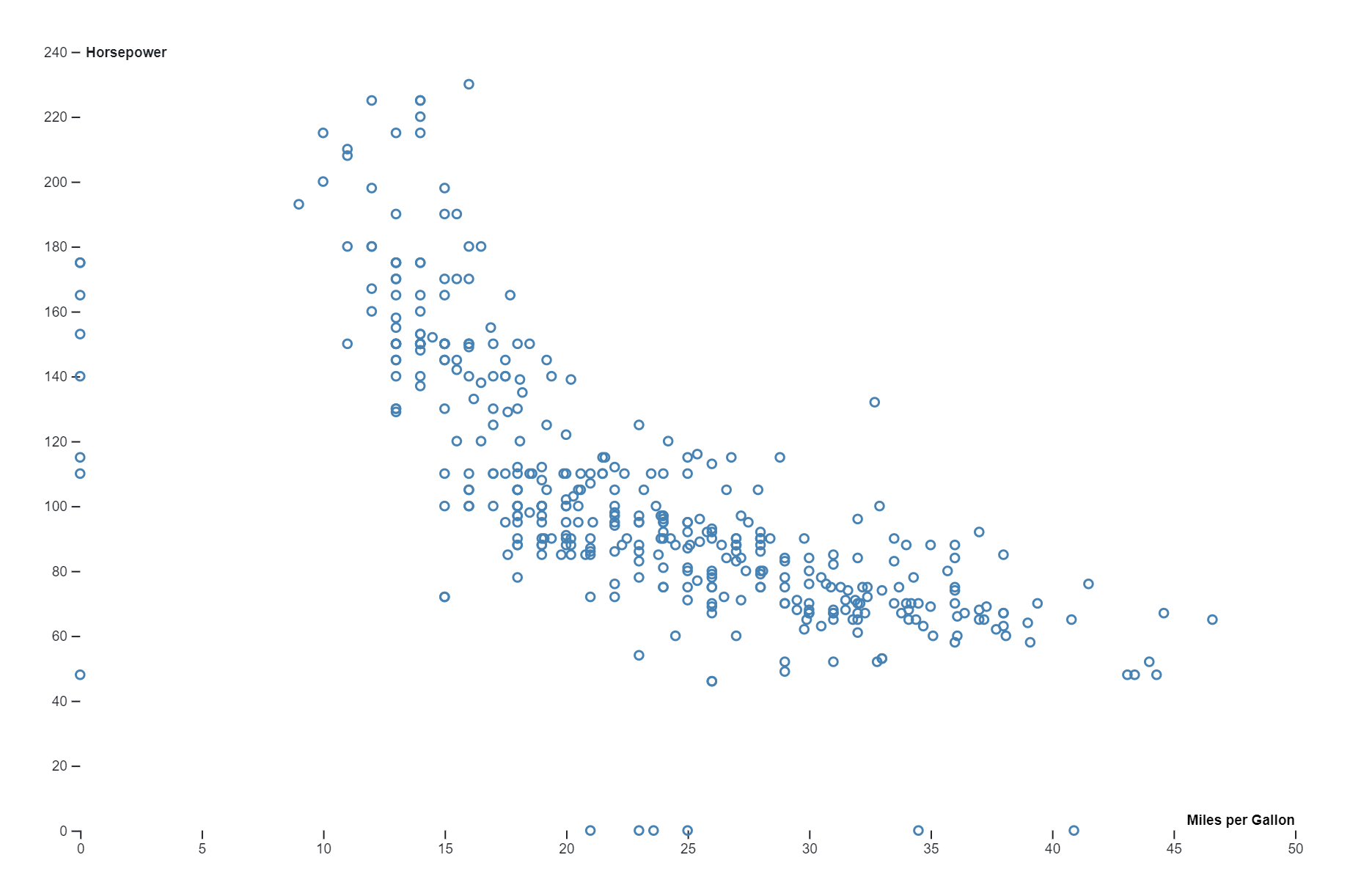
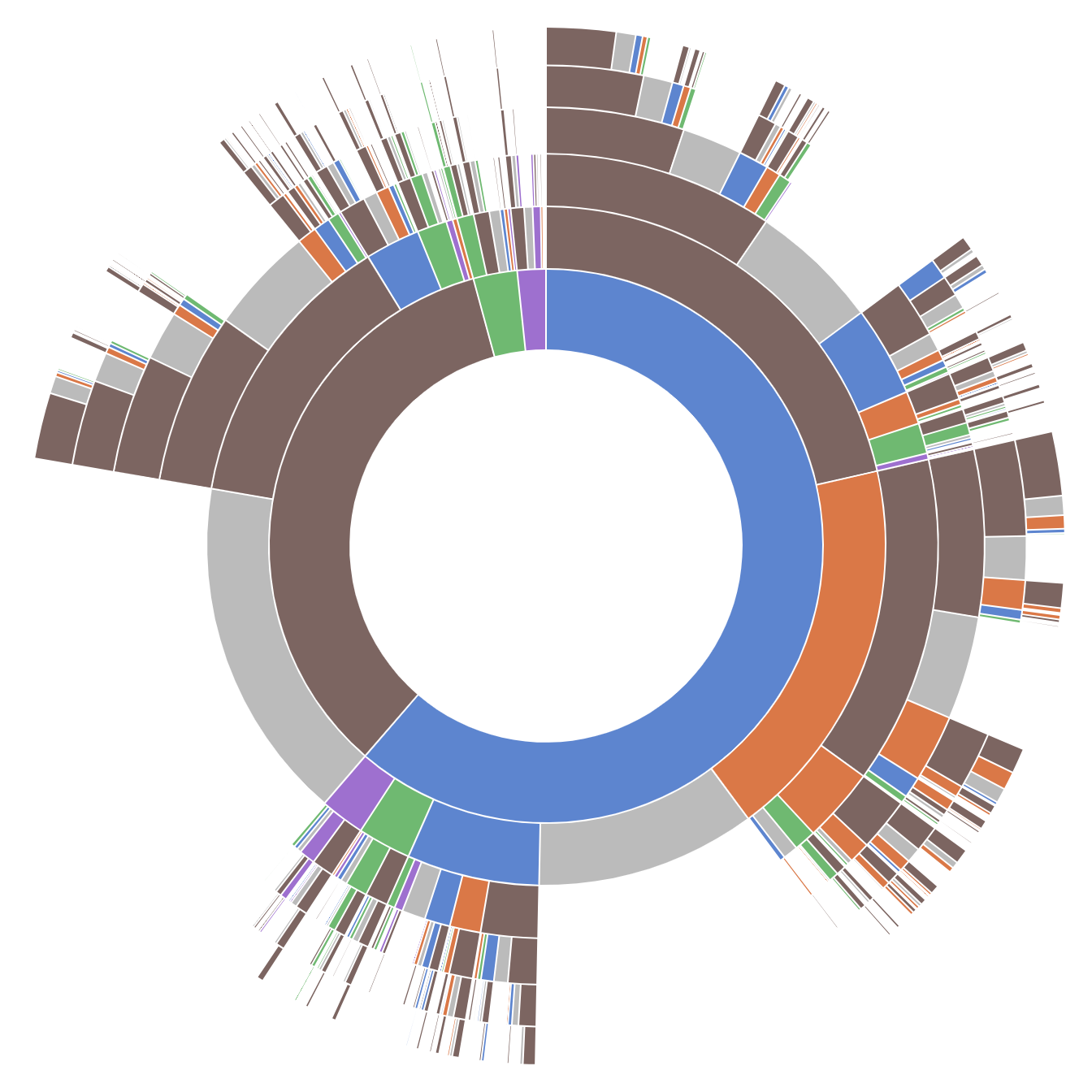
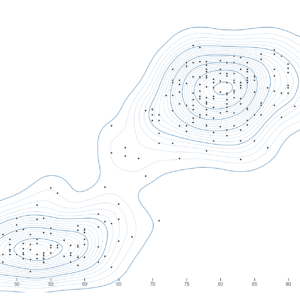
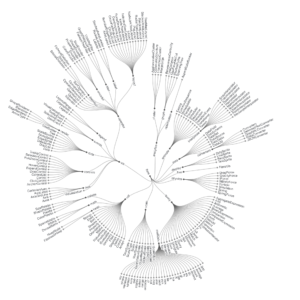
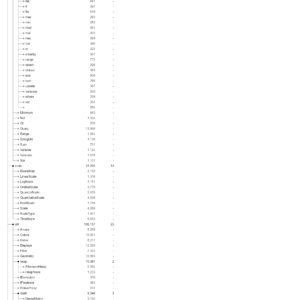
Reviews
There are no reviews yet.